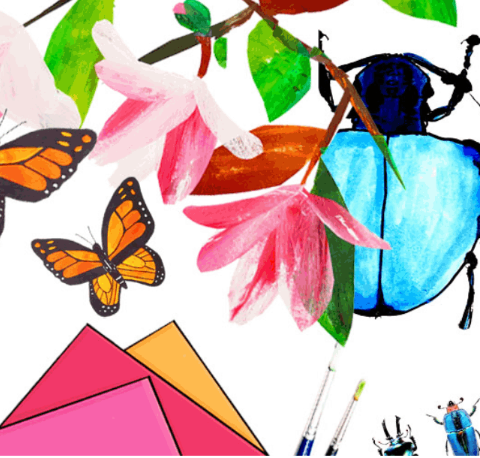Education, at its core, is about more than textbooks and standardized tests; it’s about nurturing well-rounded individuals with the skills and mindset to navigate the complexities of life. In this pursuit, art lessons emerge as a powerful tool, offering children more than just a creative outlet. This article explores the multifaceted benefits that art lessons bring to kids, transcending the canvas to enrich their cognitive, emotional, and social development.
1. Fostering Creative Expression:
Art lessons for kids provide children with a blank canvas, both literally and metaphorically, where they can unleash their creativity without constraints. Engaging in various artistic activities—be it drawing, painting, or sculpting—fosters a sense of creative expression that goes beyond the limits of words. This benefit not only encourages imaginative thinking but also helps kids discover their unique voice and perspective.
2. Enhancing Fine Motor Skills:
The intricate movements involved in art activities contribute to the development of fine motor skills in young children. From the controlled strokes of a paintbrush to the precise manipulation of clay, each artistic endeavor refines their hand-eye coordination and dexterity. These skills are fundamental for various daily tasks and lay the foundation for future academic pursuits.
3. Encouraging Problem-Solving Skills:
Art is inherently a process of problem-solving. Children faced with artistic challenges learn to explore different solutions, fostering a resilient and adaptive mindset. Whether figuring out how to represent an idea visually or deciding on color combinations, these problem-solving skills acquired during art lessons transcend into other aspects of their lives.
4. Building Self-Esteem and Confidence:
Art provides a non-judgmental space for self-expression, enabling children to create without fear of failure. As they witness their ideas materialize into tangible art, a sense of accomplishment flourishes. This boost in self-esteem and confidence is crucial for a child’s overall development, influencing their willingness to tackle new challenges both in and outside the classroom.
5. Cultivating Emotional Intelligence:
Art lessons serve as a conduit for emotional expression, allowing children to convey feelings that might be challenging to express verbally. The act of creating art facilitates self-reflection, helping kids develop emotional intelligence. This skill not only enhances their ability to understand and manage their own emotions but also fosters empathy towards others.
6. Promoting Focus and Concentration:
Art demands concentration and attention to detail. Through sustained engagement in art lessons, children learn to focus on the task at hand, honing their ability to concentrate for extended periods. This enhanced focus can positively impact their academic performance and contribute to better classroom behavior.
7. Cultivating Social Skills:
Art lessons often involve collaboration and group activities, providing an ideal setting for the cultivation of social skills. Children learn to share materials, communicate ideas, and work together towards a common artistic goal. These collaborative experiences contribute to the development of teamwork, communication, and conflict resolution skills.
8. Encouraging Cultural Appreciation:
Art is a universal language that transcends cultural boundaries. Art lessons expose children to diverse artistic styles and traditions, fostering an appreciation for different cultures. This exposure nurtures open-mindedness and a broader perspective, contributing to the development of culturally aware and empathetic individuals.
9. Stimulating Critical Thinking:
Art encourages children to think critically about the world around them. Analyzing and interpreting artistic creations stimulate their analytical and critical thinking skills. This skill set becomes invaluable as they navigate through various subjects in school and encounter complex problems that require thoughtful consideration.
10. Nurturing a Love for Learning:
Art lessons ignite a passion for learning that extends beyond the art studio. The joy and curiosity sparked by creative expression often spill over into other academic subjects. Children develop a love for learning, viewing education as an exploration rather than a chore.
Conclusion:
The benefits of art lessons for kids go beyond the mere act of creating aesthetically pleasing pieces. Art serves as a dynamic catalyst, influencing cognitive, emotional, and social development in profound ways. From fostering creative expression and enhancing fine motor skills to promoting problem-solving abilities, building self-esteem, and nurturing a love for learning, art lessons are an integral component of a holistic education. As parents, educators, and society at large recognize the profound impact of art on a child’s development, investing in creative outlets becomes not just a choice but a necessity in sculpting well-rounded, imaginative, and emotionally intelligent individuals. The benefits of art lessons for kids unfold as a colorful tapestry, weaving a future generation that is not only academically proficient but also creatively resilient and socially adept.

